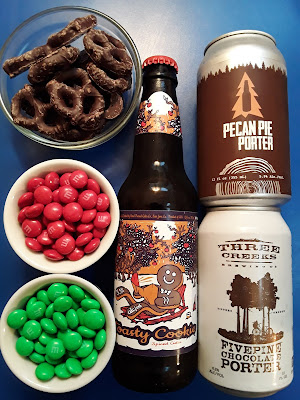"And we must consider that some of the passions are natural, and some empty; and of the natural ones some are necessary, and some merely natural. And of the necessary ones, some are necessary to happiness, and others, with regard to the exemption of the body from trouble; and others with respect to living itself;"
First briefly on alcohol: everyone knows that the drinking of excessive alcohol can lead to pains far greater than the original pleasure, and so knowing this an Epicurean takes care of the body's enjoyment by choosing to drink the amount which stays within their own individual bodily limits.
Principle Doctrine 3: "The limit of enjoyment is the removal of all pains. Wherever and for however long pleasure is present, there is neither bodily pain nor mental distress."
Principle Doctrine 8: "No pleasure is bad in itself; but the means of paying for some pleasures bring with them disturbances many times greater than the pleasures themselves."
For myself, I have never had trouble with excessive alcohol intake, because my body gives me very clear and painful messages when I drink more than I should. I also notice that I enjoy alcohol best by only drinking a few times a month in small quantities, so I have on hand non-alcoholic drinks such as carbonated mineral water and non-alcoholic ginger beer. Alcohol is not a necessary need for the body, and one must sense the inner feelings of the body to determine for oneself when the pleasures of drinking alcohol are worth a loss of vigor and vitality which can accompany even moderate consumption. There can be a personal hedonic calculus to decide if and when to drink and there are times when alcohol can have a much needed medicinal value, but it should be respected and not abused to the point of addiction.(See this earlier post: https://epicureanphilosophyblog.blogspot.com/2021/12/evaluation-of-activities-for-benefit_6.html)
Some people really enjoy their sweets, and find they have frequent and excessive sugar cravings. This can become like an addiction when one constantly thinks about or plans for the next sweet treat. In modern times sweets are both easily procured and inexpensive. Sugar is everywhere and in many foods, and it is very hard to avoid the consumption of sugar. I'm sure this was not the case in Epicurus' time. So we must think about this and see how to best to deal with sugar cravings. There is a very unsettling feeling in the mind when sugar cravings become too prominent in one's consciousness.
I have tried at times to completely eliminate sugar from my diet. This may work for some people, but doesn't work for me. (Maybe my brain chemistry is permanently wired to enjoy sugar - life is just not very fun without it). It is important to realize that there is a bodily limit to the enjoyment of sugar that can be found, but just as with alcohol each person must discover this limit for themselves. This limit is what I call the "sugar yuck factor", when sugar no longer feels pleasureable. This requires one to be especially sensitive to the feelings which arise within the body while eating more sugary treats than one "should". For example, this excessive feeling can occur when eating too much homemade sugar cookie icing. Feeling the unpleasant feelings in the body is a great way to "reset" the sugar cravings, but it must also be combined with choosing to buy healthier foods and avoiding bringing home large quantities of sugary treats. One focuses the mind on learning to desire foods which are healthy and good for the body, and which increase feelings of vigor and vitality. I still choose to eat sweet treats on occasion, and I do so keeping in mind moderation, and that if I eat a treat every day it isn't as pleasureable as spacing out the treats over time.
It's up to every individual to determine their own sugar limit, and to do so with respect for maintaining the pleasureable feeling of health of the body.





